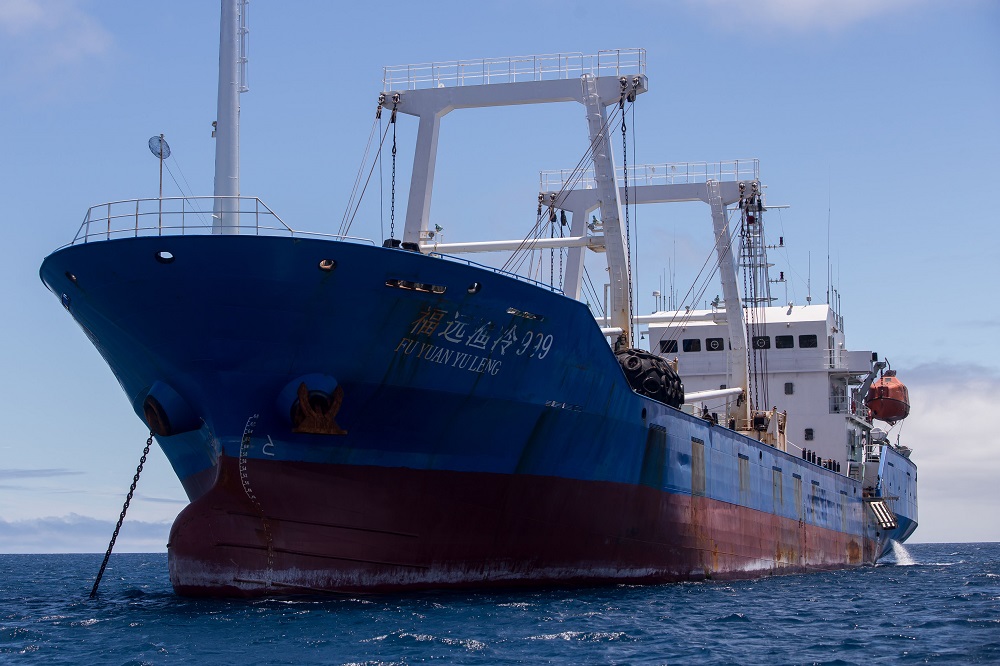China’s expansive presence is causing a negative impact on different Latin American countries. Destruction of ecosystems, corruption, crime, and unfair competition are some of the shadows that China casts over the region.
The ecological sector is among the most affected. Chinese fishing vessels are depleting marine resources and protected maritime areas. For example, the Ecuadorean Naval Force told the press in late July that a massive fishing fleet, mostly Chinese-flagged, was operating in the vicinity of the Galapagos Islands’ Exclusive Economic Zone.
“We firmly support Ecuador’s efforts to ensure PRC- [People’s Republic of China] flagged vessels do not engage in illegal, unreported, and unregulated fishing and stand with states whose economies and natural resources are threatened by PRC-flagged vessels’ disregard for the rule of law and responsible fishing practices,” U.S. Secretary of State Mike Pompeo said on August 2.
This problem isn’t new. In 2017, Ecuadorean authorities reported detaining the Chinese freighter Fu Yuan Yu Leng 999 in the Galapagos marine reserve. The ship was carrying 300 tons of shark fin, in addition to hammerhead and silky sharks. The crew was prosecuted for environmental crimes.

Other countries such as Argentina, Colombia, Chile, Mexico, Peru, and Uruguay also suffer from excessive fishing in their seas by Chinese companies, Juan Carlos Sueiro, head of the international nongovernmental organization (NGO) Oceana, told Diálogo. Among the most affected species are sharks and totoabas, he added.
Corruption, unfair practices, crime
The Chinese impact on Latin American ecosystems is not limited to marine resources. On June 2, 2020, the NGO The Society for Conservation Biology published a study reporting that jaguar poaching and trafficking in Latin America is linked to China’s private investment in different countries of the region. “In essence, it seems that countries with new Chinese money rolling in are the ones where we see an increase in overseas jaguar trade,” Vincent Nijman, the study’s co-author, told The New York Times in June.
Another impact of China’s investments in Latin America is corruption. For example, according to an investigation published in June 2019 by the Ecuadorean newspaper El Universo, at least seven Chinese companies hired by the Ecuadorean government for public works in sectors such as construction, mining, telecommunications, and oil exploitation made payments to entities that the Ecuadorean Internal Revenue Service classified as ghost companies.
Chinese companies also engage in unfair trade practices such as steel dumping, forcing countries like Argentina, Brazil, Chile, Colombia, Mexico, and Peru, among others, to take measures to protect their industries. Dumping consists of selling a product at a price that is lower than its production cost, as an attempt to grab the market and eventually recover well more than the money invested.
The partnership between Chinese mafias and organized crime is also evident in synthetic drug trafficking.
For instance, Chinese criminal groups smuggle fentanyl into the United States through alliances with Mexican drug cartels, according to the U.S. Drug Enforcement Administration (DEA) report Fentanyl Flow to the United States, published in January 2020. Fentanyl is a synthetic opioid that is similar to morphine and produced at a low cost in China. It entered the U.S. illegal market in 2013 and is popular for being 80 to 100 times more potent than morphine, the DEA says.









